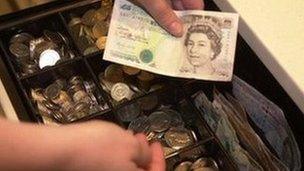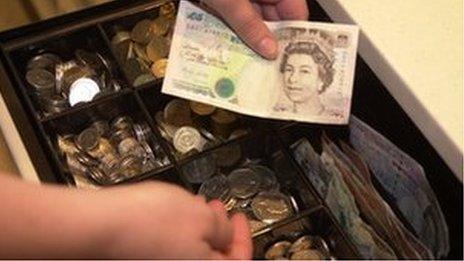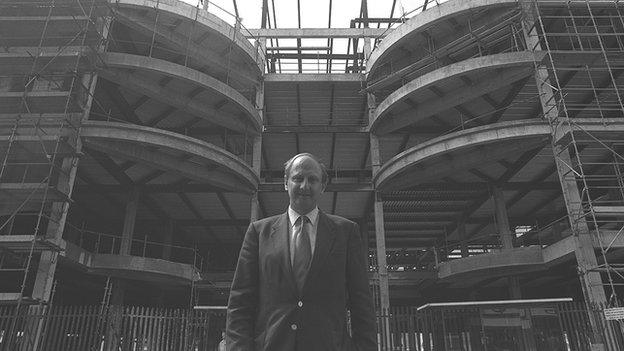Ulster Bank: PMI survey suggests weakening NI economy
- Published

Northern Ireland's private sector saw a fall in economic output for the third month in a row during February, Ulster Bank has said.
The bank's monthly PMI is a survey of firms that tracks indicators such as new orders, employment and exports.
The retail sector showed signs of being under pressure with the PMI pointing to falling activity and employment.
The bank said the continuing strength of sterling against the euro will have hit cross-border shopping levels.
Ulster Bank's Chief Economist Richard Ramsey said: "Conversely, the retail and hospitality industry along the border in the Republic of Ireland will be benefiting from increased custom from Northern Ireland consumers."
He added that beneath the headline figures, the index did show signs of improvement relative to the January report.
He said that order books were continuing to grow and that many firms were increasing staffing levels.
Mr Ramsey said the disinflation and deflation which is evident in the UK and Eurozone economies was also reflected in February's survey.
The manufacturing sector reported falling costs for the first time since February 2009, aided by the decline in oil and commodity prices and a strong pound,
However, he cautioned that this "does not automatically translate into increased profits" as companies were passing on savings to remain competitive.
Meanwhile, the latest InterTradeIreland Business Monitor suggests that falling fuel prices are feeding through to businesses.
Just 9% reported rising energy costs as being a "key challenge", compared to 30% at the start of the year.
However, the report also points to the sterling/euro exchange rate growing in importance as a business issue.
- Published9 February 2015

- Published1 February 2015
